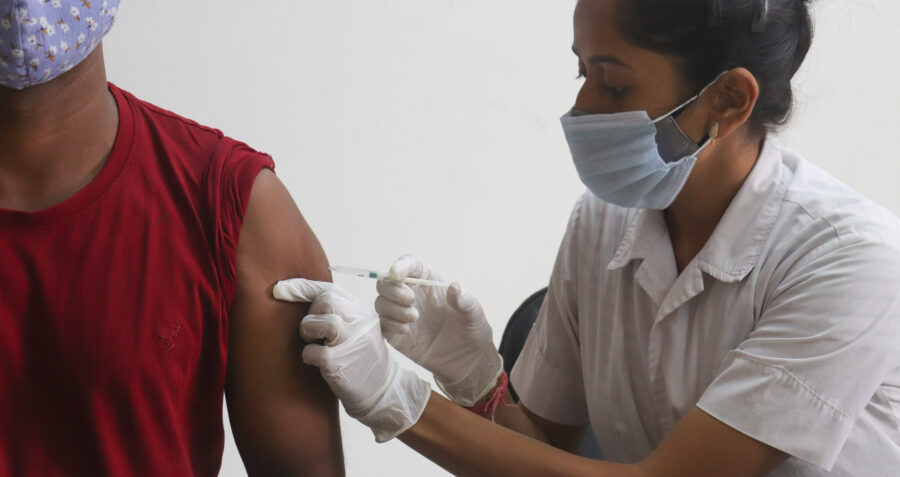Vaccination camps for COVID-19 vaccines

Key information
- Organisation: Alliance India and Gujarat State Network of People living with HIV (GSNP+)
- Country: India
- Region: Asia and the Pacific
- Stage of innovation: Stage 6: In the market and Ready to scale
- Start date: March 2021
- End date: July 2022
- Type of innovation: Services delivery innovation: new or different way of providing a service
- Budget: 100,000 USD
- Funder: Elton John AIDS Foundation (EJAF)
Summary of intervention
The Indian government rolled out a COVID-19 vaccination programme. Despite it being free of charge, many members of marginalised communities were reluctant to attend public health facilities. Some feared the vaccine because of myths they had heard and others were concerned that they would face the usual stigma and discrimination they often experience in health facilities. The online registration process for receiving the vaccine posed many challenges for those without sufficient digital literacy and those who did not have a phone number (which was a requirement). In particular, people living with HIV were afraid of being exposed to COVID-19 in crowded waiting rooms.
Alliance India and GSNP+ organised 12 vaccination camps -– dedicated and safe spaces for members of key populations and marginalised communities. The camps were held at the GSNP+ offices, offering a stigma-free and less crowded environment, compared to health facilities. Alliance India and GSNP+ worked closely with other community organisations representing key populations, such as Lakshya Trust and PARAS PSM, to raise awareness and encourage people to come for vaccination. Outreach workers helped people to travel to the camps and overcome any registration hurdles. The vaccination camps were devised in direct consultation with communities to address the specific challenges they faced.
In total, 1277 people received 2 doses of the COVID-19 vaccine at the camps.
learnings
For these marginalised and often stigmatised communities, having their own community members employed as outreach workers helped foster trust, reduce the fear around vaccines and encourage more people to come forward for vaccination.
GSNP+ also built important and strong relationships with key staff at the Surat Municipal Hospital who appreciated the value of involving community organisations and were willing to step in to provide extra vaccines when demand exceeded original expectations.
Closer coordination with the public health system and local authorities during the planning phase would have helped avoid some of the initial challenges. For example, the staff at the camps would have benefitted from training in advance on the online registration requirements.
sustainability
Alliance India, GSNP+ and others working on HIV and TB demonstrated that they were able to quickly adapt and respond to the COVID-19 emergency and support public health goals, experience that could be applied in future pandemics.
As governments invest more in pandemic preparedness, community organisations and their systems will need adequate funding if they are to be part of health systems.
Read more about the vaccination camps HERE.

